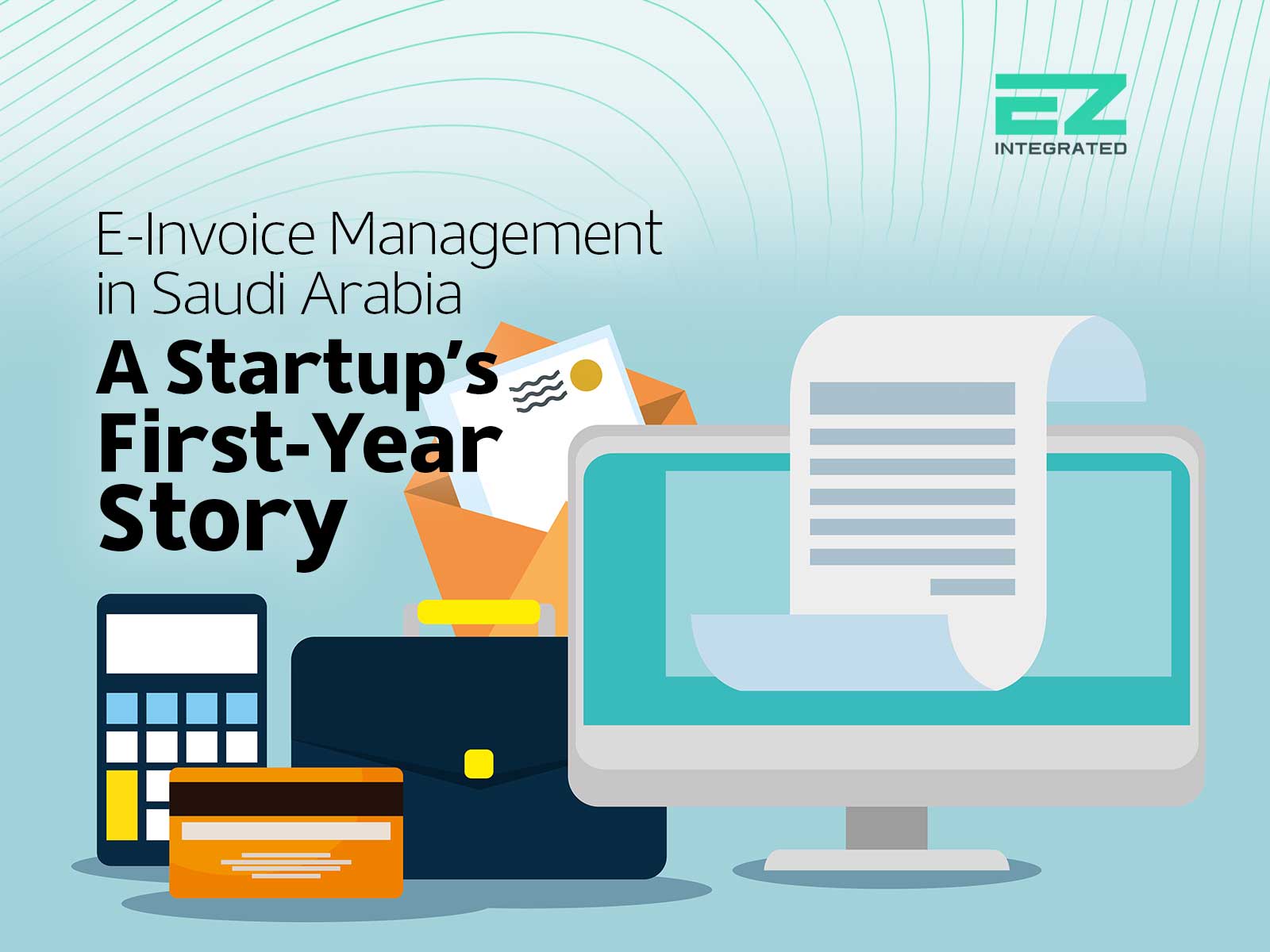E invoice management quickly became a major concern for Dana as her small Instagram store for incense and candles evolved into a full-scale business in just one year. With a growing team handling operation, Dana faced an unexpected challenge: compliance with Saudi Arabia’s e invoicing regulations.
What do startups need to know? How do phases one and two differ? And how can partners like EZ Integrated help?
Understanding E Invoice Requirements
Dana had no accounting background. But once she registered a commercial license, her accountant explained the need to issue electronic invoices and comply with ZATCA’s regulations.
The first step in e invoice management was registering her business on the FATOORA platform via the ZATCA portal. This was necessary to activate any e invoicing system.
Initially, Dana assumed e invoice only applied to large companies. She soon realized that all businesses, regardless of size, must comply—through two main phases.
Phase One of E Invoice in Saudi Arabia: Generation and Archiving
The business had to stop issuing handwritten or printed receipts. Every transaction, even a single candle box, needed to be documented electronically with all required details.
Although the team was small, they had to learn how to use the new system, test invoice generation, and organize secure digital archiving.
Also read: 10 FAQs About ZATCA E Invoice and How It Works
E Invoice Management Explained Simply
To help her team understand e invoice management, Dana described an e invoice as a “smart” document—written, signed, and sent automatically. This simplified view helped overcome resistance.
- The team focused on learning the basics:
- A unique tax number for each invoice
- A QR code on simplified invoices
- PDF/A-3 format with embedded XML
- Automated archiving tools for fast access
Phase Two of E Invoice in Saudi Arabia: Integration and Complexity
Dana thought the job was done after generation and archiving. But phase two brought new complexity. Her business now had to integrate with the FATOORA platform directly.
- Surprising challenges included:
- Setting up a digital signature
- Using software that supports API integration
- Ensuring compatibility with approved providers
For a startup with no IT team, these tasks were overwhelming. That’s when she turned to a trusted e invoicing solution provider.
Also read: API Integration: Streamlining E Invoice Solutions and Tax Compliance
How EZ Integrated Simplified E Invoice Management
By working with EZ Integrated, the team overcame all technical barriers without hiring new staff. The provider handled the integration, digital signature setup, and real-time invoice transmission.
EZ Integrated also offered training sessions and ongoing support. This saved Dana’s team valuable time and reduced stress throughout the transition.
Dana realized e invoice management was more than a legal requirement—it was a tool for financial growth. Her team learned new accounting practices and gained trust in the system’s reports and insights.
Is Your Business Ready for E Invoice Management?
If you run a small or medium-sized business in Saudi Arabia, e invoice management is not optional. It builds trust, protects against penalties, and helps your business scale smoothly.
Start now. Choose a tech partner like EZ Integrated to guide you through full compliance. We don’t just provide tools—we walk with you every step of the way.
EZ Integrated is an officially approved e invoicing provider by ZATCA. That means you’re working with a partner who fully understands FATOORA compliance and stays up to date with all regulatory changes. Contact us today for a free consultation before the integration deadline!
